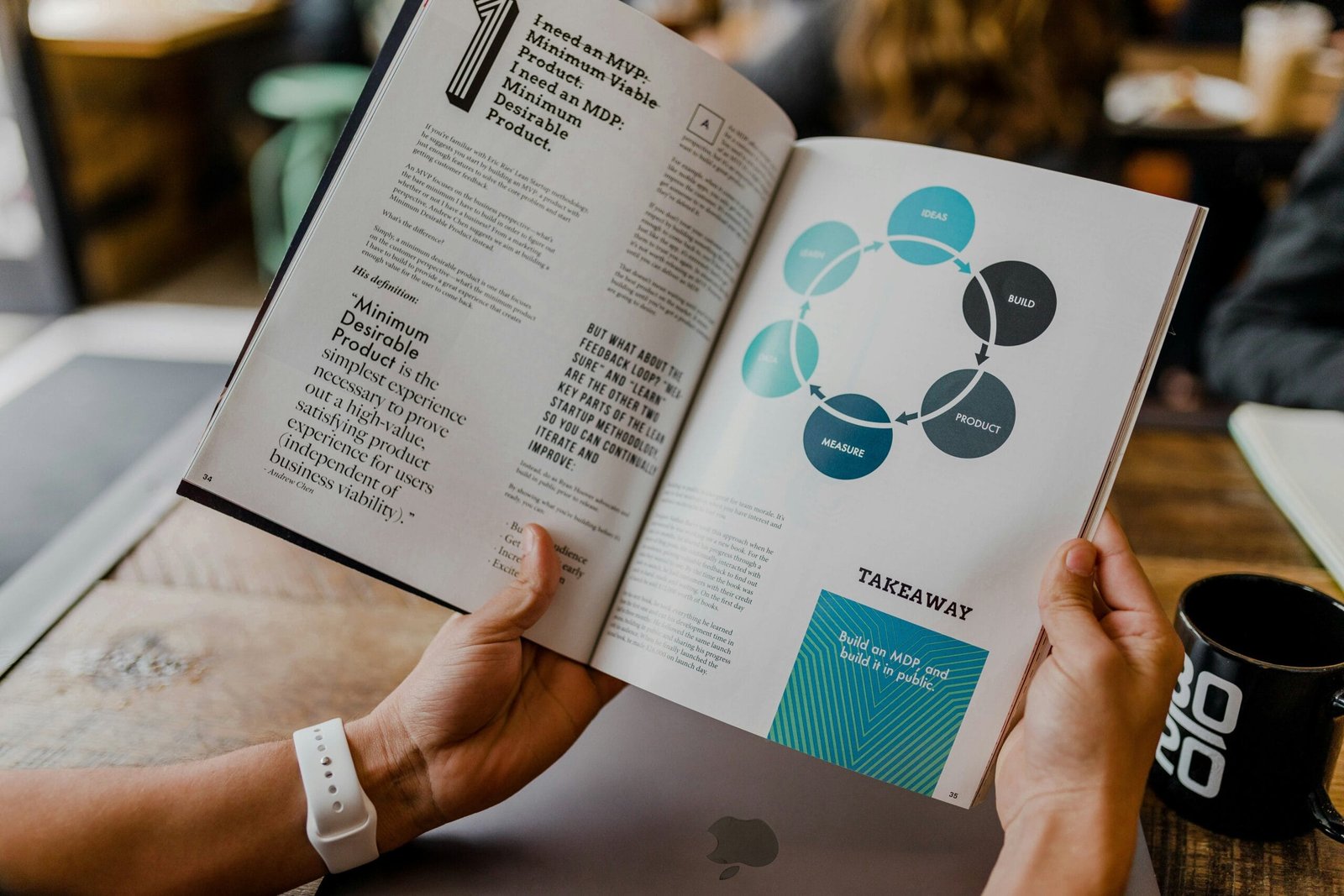
Transforming your groundbreaking product idea into a market-ready solution is one of the most crucial decisions you’ll make as an entrepreneur. With over 50,000 development agencies worldwide competing for your business, selecting the wrong partner could mean months of delays, budget overruns, and ultimately, a failed product launch.
The agency you choose becomes more than just a vendor—they become your strategic partner, working alongside you for months or even years to bring your vision to life. This comprehensive guide will walk you through every aspect of choosing the perfect development agency, from understanding your needs to avoiding costly mistakes that could derail your entire project.

Understanding Your Product Development Needs Before Agency Selection
Defining Your Product Vision and Scope
Before you even start researching agencies, you need crystal-clear clarity on what you’re building. This isn’t just about having a good idea—it’s about understanding the complete scope, complexity, and requirements of your product.
Start by documenting these fundamental elements:
Product Type and Category: Are you developing a mobile application, web platform, SaaS solution, e-commerce site, or physical product? Each category requires vastly different expertise, technologies, and development approaches.
Core Problem and Solution: Articulate the specific problem your product solves and how it provides value to users. Agencies need to understand your value proposition to suggest improvements and identify potential challenges early in the process.
Target Audience and Market: Define your ideal customers, their demographics, pain points, and behavior patterns. This information helps agencies recommend appropriate technologies, design approaches, and development strategies.
Technical Complexity Level: Assess whether your product requires basic functionality or advanced features like AI integration, real-time data processing, complex algorithms, or third-party integrations.
Budget Planning and Resource Allocation
Establishing a realistic budget is critical for finding agencies within your financial range. Development costs vary dramatically based on project complexity, timeline, and agency location. Here’s how to approach budget planning:
Research Market Rates: Development agencies typically charge between $50-$200 per hour, depending on their location, expertise, and reputation. Fixed-price projects can range from $10,000 for simple applications to $500,000+ for complex enterprise solutions.
Consider Total Project Cost: Beyond initial development, factor in ongoing costs for maintenance, updates, hosting, third-party services, and potential scaling requirements.
Plan for Contingencies: Add 20-30% buffer to your budget for scope changes, unexpected challenges, or additional features that emerge during development.
Understand Payment Models: Agencies offer different pricing structures including fixed-price contracts, time-and-materials billing, or dedicated team arrangements. Each model has advantages depending on your project’s nature and risk tolerance.
Timeline Expectations and Market Pressures
Realistic timeline planning prevents costly mistakes and helps you find agencies that can meet your launch goals. Consider these timeline factors:
Market Timing: If you’re entering a competitive market or have seasonal considerations, your launch timeline may be non-negotiable. Some agencies specialize in rapid development while others focus on comprehensive, methodical approaches.
MVP vs. Full Product: Determine whether you need a Minimum Viable Product for market validation or a feature-complete solution for immediate market dominance.
Regulatory Compliance: Products in healthcare, finance, or other regulated industries require additional development time for compliance testing and certification.
Integration Requirements: Products requiring integration with existing systems, third-party APIs, or legacy databases typically need extended development timelines.
Essential Criteria for Evaluating Development Agencies
Portfolio Analysis and Past Project Success
A strong portfolio reveals an agency’s true capabilities better than any sales presentation. When reviewing portfolios, look beyond surface-level aesthetics to understand their problem-solving abilities and technical expertise.
Depth of Experience: Look for agencies that have completed projects similar to yours in complexity, technology stack, and industry requirements. While they don’t need identical project experience, they should demonstrate competence in adjacent areas.
Project Outcomes and Results: Quality agencies showcase measurable results from their projects, including user adoption rates, performance improvements, successful funding rounds, or revenue growth achieved by their clients.
Technology Stack Diversity: Agencies working with modern, relevant technologies are more likely to build scalable, maintainable products. Be cautious of agencies using outdated technologies or those who only work with a single tech stack.
End-to-End Project Examples: Look for examples where agencies handled complete product lifecycles from initial concept through market launch and post-launch optimization.
Technical Expertise and Team Composition
The right team structure ensures your project receives appropriate expertise at every development phase. Quality agencies should have:
Product Strategy Experts: Product managers who understand market validation, user experience design, and feature prioritization strategies.
Full-Stack Development Capabilities: Front-end developers for user interfaces, back-end developers for server logic and databases, and mobile developers for iOS/Android applications.
DevOps and Infrastructure Specialists: Engineers who handle deployment, scaling, monitoring, and security implementation.
Quality Assurance Teams: Dedicated testers who ensure your product works flawlessly across different devices, browsers, and usage scenarios.
UI/UX Design Specialists: Designers who create intuitive, engaging user experiences that drive adoption and retention.
Industry Experience and Domain Knowledge
Agencies with relevant industry experience understand your unique challenges and can provide valuable strategic guidance beyond just technical implementation.
Regulatory Compliance Knowledge: For industries like healthcare, finance, or education, agencies need deep understanding of compliance requirements like HIPAA, PCI-DSS, or FERPA.
Industry-Specific User Behavior: Agencies familiar with your industry understand how your target users interact with similar products and can recommend proven design patterns and functionality.
Integration Experience: Different industries have standard third-party services, APIs, and integration requirements. Experienced agencies already understand these ecosystems.
Scaling Challenges: Agencies that have worked in your industry understand typical growth patterns and can architect solutions that scale appropriately.
Critical Questions to Ask Potential Development Agencies
Discovery and Strategy Questions
Professional agencies should ask as many questions as they answer during initial conversations. Here are essential questions to evaluate their strategic thinking:
“How do you approach product validation and market research?” Quality agencies insist on validating product concepts before development begins through user interviews, prototype testing, and market analysis.
“What’s your process for defining MVP features?” Look for agencies that use systematic approaches like user story mapping, MoSCoW prioritization, or jobs-to-be-done frameworks.
“How do you handle changing requirements during development?” Expect detailed explanations of their change management processes, including how they handle scope creep and additional feature requests.
“What role do you expect us to play throughout development?” Understand their collaboration expectations and ensure they align with your availability and expertise.
Technical and Process Questions
Dive deep into their technical capabilities and development methodologies:
“What development methodology do you follow?” Most quality agencies use Agile or Scrum methodologies with regular sprints, daily standups, and iterative development cycles.
“How do you ensure code quality and maintainability?” Look for agencies that use code reviews, automated testing, continuous integration, and documentation standards.
“What’s your approach to security and data protection?” Especially important for products handling sensitive user data or financial information.
“How do you handle project communication and reporting?” Understand their communication frequency, channels, and reporting tools.
Post-Launch Support and Maintenance
Development doesn’t end at launch. Evaluate their ongoing support capabilities:
“What post-launch support services do you provide?” Quality agencies offer bug fixes, performance monitoring, security updates, and feature enhancements.
“How do you handle knowledge transfer if we want to manage the product internally?” Professional agencies provide comprehensive documentation and can train your internal team.
“What’s your process for handling urgent issues after launch?” Understand their response times and escalation procedures for critical problems.
“How do you approach product scaling and growth?” Look for agencies that can support your product as it grows in users, features, and complexity.
Red Flags and Warning Signs to Avoid
Unrealistic Promises and Guarantees
Be extremely cautious of agencies that make promises that sound too good to be true:
Guaranteed Success Without Research: Any agency promising to build your product without first validating the concept, researching the market, or understanding your users is showing inexperience or dishonesty.
Unrealistic Timeline Promises: Quality development takes time. Agencies promising to build complex products in unreasonably short timeframes often cut corners that lead to technical debt and future problems.
Suspiciously Low Pricing: While cost is important, pricing significantly below market rates often indicates offshore teams with communication barriers, inexperienced developers, or hidden costs that emerge later.
Technology Silver Bullets: Agencies claiming their proprietary technology or approach will solve all your problems are often overselling their capabilities.
Poor Communication and Transparency
Communication quality during the sales process predicts project communication:
Slow or Inconsistent Responses: If agencies are unresponsive during sales, expect worse communication during development when they’re juggling multiple projects.
Vague Process Descriptions: Professional agencies should clearly explain their development process, timelines, and deliverables. Vague answers suggest disorganization or inexperience.
Reluctance to Provide References: Quality agencies are proud of their work and happy to connect you with satisfied clients.
No Questions About Your Business: Agencies that don’t ask detailed questions about your goals, users, and challenges likely take a one-size-fits-all approach.
Technical and Operational Concerns
Watch for these technical red flags:
Outdated Technology Stacks: Agencies still primarily using outdated technologies may struggle to build modern, scalable products.
No DevOps or Deployment Strategy: Agencies without clear deployment and hosting strategies often struggle with product launches and scaling.
Lack of Testing Protocols: Agencies that don’t emphasize quality assurance and testing often deliver buggy products.
No Security Expertise: In today’s environment, agencies without security expertise put your product and users at risk.
Agency Types and Specializations: Finding Your Perfect Match
Full-Service vs. Specialized Agencies
Full-service agencies handle everything from strategy to deployment, offering convenience and consistency but sometimes lacking deep specialization. Specialized agencies focus on specific technologies, industries, or project types, providing expert knowledge but potentially requiring multiple partners.
When to Choose Full-Service Agencies:
You want one point of contact for your entire project
Your product requires diverse expertise across multiple disciplines
You prefer simplified project management and communication
You’re building a comprehensive product with multiple components
When to Choose Specialized Agencies:
Your product requires deep expertise in specific technologies
You’re in a highly regulated industry requiring compliance knowledge
You have specific technical challenges that need specialist solutions
You’re comfortable managing multiple vendor relationships
Geographic Considerations and Remote Work
Agency location affects communication, cost, and cultural alignment:
Local Agencies offer face-to-face meetings, cultural alignment, and timezone convenience but typically cost more and have limited talent pools.
Nearshore Agencies provide cost savings with reasonable timezone overlap and cultural similarity, making them popular for North American and European companies.
Offshore Agencies offer significant cost savings but may present communication challenges, timezone difficulties, and cultural misalignments.
Remote-First Agencies have adapted to distributed work and often provide excellent communication tools and processes regardless of location.
Industry-Specific Agency Expertise
Consider agencies with deep industry knowledge:
Healthcare and Medical: Agencies specializing in healthcare understand HIPAA compliance, FDA regulations, clinical workflows, and patient data security requirements.
Financial Services: Fintech specialists understand PCI compliance, banking regulations, fraud prevention, and financial API integrations.
E-commerce and Retail: Agencies with e-commerce expertise understand payment processing, inventory management, marketing integrations, and conversion optimization.
Education and EdTech: Educational technology specialists understand FERPA compliance, learning management systems, and pedagogical principles.
The Agency Selection Process: Step-by-Step Guide
Initial Research and Shortlisting
Start with comprehensive research to identify potential agencies:
Industry Networks and Referrals: Ask industry contacts, investors, and other entrepreneurs for agency recommendations. Personal referrals often yield the highest-quality candidates.
Online Research and Directories: Use platforms like Clutch, GoodFirms, and UpWork to find agencies with relevant expertise and client reviews.
Portfolio and Case Study Analysis: Review agency websites, case studies, and portfolios to identify those with relevant experience and impressive results.
Initial Screening Criteria: Create a shortlist of 5-8 agencies that meet your basic requirements for experience, budget, and technical capabilities.
Proposal Evaluation and Comparison
Request detailed proposals from your shortlisted agencies:
Proposal Requirements: Ask for comprehensive proposals including project understanding, technical approach, timeline, team composition, and detailed pricing.
Comparative Analysis: Create a scoring system to objectively compare proposals across criteria like technical approach, team expertise, timeline realism, and overall value.
Red Flag Identification: Watch for proposals with cookie-cutter approaches, unrealistic timelines, or significant gaps in understanding your requirements.
Clarification Sessions: Schedule follow-up calls to clarify proposal details and assess communication quality.
Reference Checks and Due Diligence
Conduct thorough reference checks with previous clients:
Client Interview Questions: Ask about project delivery quality, communication effectiveness, problem-solving capabilities, and overall satisfaction.
Project Outcome Verification: Verify claimed results and outcomes from previous projects when possible.
Long-term Relationship Assessment: Understand how agencies handle ongoing relationships and post-launch support.
Financial Stability Check: Research agency financial stability and business longevity to ensure they’ll be available for ongoing support.
Making Your Final Decision: Key Considerations
Cultural Fit and Working Relationship
Beyond technical capabilities, assess cultural compatibility:
Communication Style Alignment: Ensure the agency’s communication style matches your preferences for frequency, formality, and detail level.
Work Ethic and Values: Assess whether the agency shares your values around quality, deadlines, and professional conduct.
Problem-Solving Approach: Understand how the agency handles challenges and whether their approach aligns with your expectations.
Long-term Partnership Potential: Consider whether this agency could become a long-term technology partner as your product and company grow.
Contract Terms and Risk Management
Negotiate contract terms that protect your interests:
Intellectual Property Rights: Ensure you retain full ownership of your product’s code, designs, and intellectual property.
Scope Change Management: Establish clear procedures for handling scope changes, additional features, and budget modifications.
Performance Guarantees: Include measurable performance metrics and remedies for missed deadlines or quality issues.
Termination Clauses: Ensure you can terminate the contract if necessary while retaining access to all work completed.
Post-Launch Support and Scalability
Plan for ongoing needs beyond initial development:
Maintenance and Support Services: Understand what ongoing support services are included and their associated costs.
Scaling Capabilities: Ensure the agency can support your product as it grows in users, features, and complexity.
Knowledge Transfer Options: Negotiate terms for transitioning product ownership to your internal team when appropriate.
Performance Monitoring: Establish ongoing performance monitoring and optimization services.
Common Mistakes Entrepreneurs Make When Choosing Agencies
Focusing Solely on Price
The cheapest option rarely delivers the best value. Low-cost agencies often:
Use inexperienced developers who produce low-quality code
Lack proper project management and communication processes
Have hidden costs that emerge during development
Provide minimal post-launch support
Instead, focus on value and return on investment. A slightly more expensive agency that delivers on time with high-quality results often costs less than a cheap agency that requires extensive fixes and delays.
Insufficient Vetting and Due Diligence
Many entrepreneurs rush the selection process due to excitement or time pressure. This leads to:
Choosing agencies without proper reference checks
Skipping technical capability verification
Ignoring communication red flags during sales
Failing to validate claimed experience and expertise
Take time to thoroughly evaluate potential partners. The weeks spent on proper vetting can save months of problems during development.
Unclear Requirements and Expectations
Failing to clearly define your requirements leads to scope creep, budget overruns, and deliverable mismatches. Common issues include:
Vague product descriptions and feature requirements
Unrealistic timeline and budget expectations
Unclear success metrics and acceptance criteria
Poor communication of technical and business constraints
Invest time in detailed requirement documentation before engaging agencies. This improves proposal quality and reduces project risks.
Ignoring Long-term Considerations
Many entrepreneurs focus only on initial development without considering long-term needs:
Post-launch maintenance and support requirements
Scaling and performance optimization needs
Feature enhancement and evolution plans
Potential technology migration requirements
Choose agencies that can support your long-term vision, not just immediate development needs.
Conclusion: Building Successful Agency Partnerships
Selecting the right development agency is one of the most important decisions in your product journey. The agency becomes your primary partner in transforming vision into reality, making their expertise, reliability, and cultural fit crucial to your success.
Remember that the best agency for your project isn’t necessarily the most expensive or the cheapest—it’s the one that combines relevant expertise, proven processes, clear communication, and genuine commitment to your project’s success.
Take time to thoroughly evaluate potential partners using the frameworks and questions outlined in this guide. Invest in the selection process upfront to avoid costly mistakes that could derail your entire product development journey.
The right agency partnership accelerates your path to market, reduces development risks, and significantly increases your chances of building a product that users love and adopt. Your future success depends on choosing wisely—make this decision with the care and diligence it deserves.
By following this comprehensive guide, you’ll be equipped to navigate the complex agency selection process and find the perfect partner to bring your product idea to life. Remember, great products aren’t just built—they’re crafted through successful partnerships between visionary entrepreneurs and skilled development teams.
Ready to Turn Your Product Idea Into Reality?
Don’t let your brilliant product idea remain just an idea. Choosing the right development partner is crucial, but taking the first step is even more important.
Our experienced product development team has helped multiple startups and enterprises transform their concepts into market-leading products. From initial validation to full-scale development and post-launch optimization, we guide you through every step of the journey.



